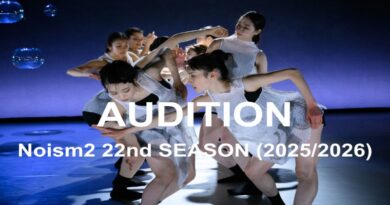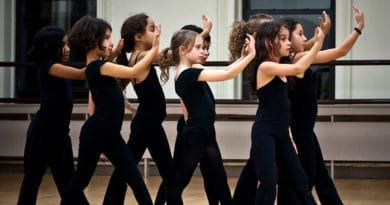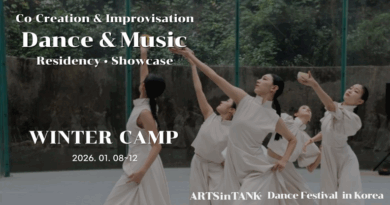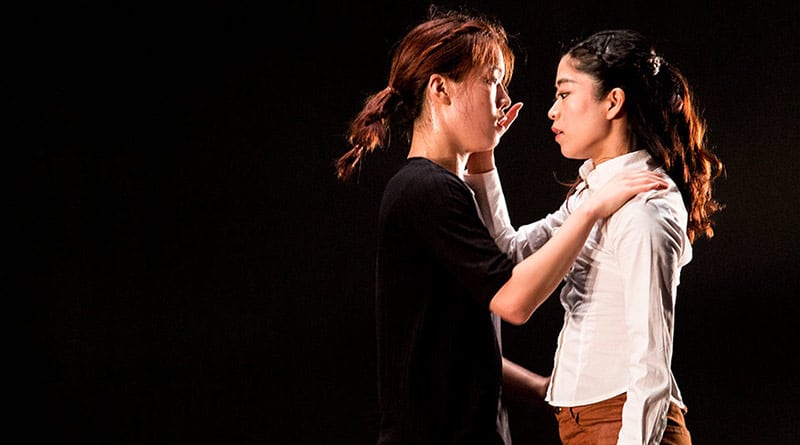
HKICAROS & Hong Kong International Choreography Festival – Where east and west meet. A space to question, discuss, explore and develop choreography; creating its present to envision its future.
HKICAROS (Hong Kong International Collective Artists in Residency for Opportunities and Sustainability) and Hong Kong International Choreography Festival is a tandem, a five week choreographic residency followed by a three day festival happening in the symbiotic city of Hong Kong from May 27th to June 29th 2019.
The man orchestrating both initiatives is Vangelis Legakis, a Greek born practitioner who, after studying dance and choreography in London, moved to Asia to immerse himself in Eastern philosophies and healing modalities. Through the study of these methods he found an inner insight which made him question why was he dancing. Then, whilst doing a Masters in Buddhist Studies in Hong Kong, he decided to find ways to merge Eastern practices with healing modalities into professional dance. This inspired him to create his organisation Unity Space – A Space of Integration.
Because of its geographic location between continents and its unique way of fusing Chinese and Western culture, Hong Kong became a beautiful centre for his purpose/vision.
Four years ago, under the umbrella of Unity Space and in a city where the arts scene is currently blooming, Van created HKICF-HKICAROS as a space ‘to define borders and limitation, to bypass them and liberate ourselves from any restrictions to move on in life and career’.
Au-di-tions.com speaks with five artists involved in HKICF- HKICAROS to get an insight on this exceptional experience. Van Legakis, founder and organiser; choreographer Andrea Peña, artist in residence in the 2018 edition; choreographer José Agudo, workshop facilitator and choreographer/performer of his production Silk Road, also in 2018; choreographer Lewis Major, presenting his piece Epilogue on the current edition; and Justyne Li, Hong Kongese artist taking part on the 2019 residency, converse with our writer Anna Cabré-Verdiell on identity, culture and art as a shared space.
A.C.- Summer is particularly a busy period with dance festivals and workshops happening all over the globe. Which is the hallmark of HKICAROS-HKICF to standout within such a wide offer?
Andrea.- One thing that I would say, is the fact of it happening in Hong Kong. It’s really interesting to have this cultural backdrop that you can sense; a cultural landscape made of a lot of dualities where you are confronted with so much richness and so much poverty, so much innovative technology but then so much Chinese cultural tradition and history. Then you are placed inside that background in the residency, creating in this beautiful bubble. So, I think that subconsciously that generates different ways of making or thinking about work.
Van.- The special aspect of HKICF-HKICAROS is its focus on the research and the development of choreographic works and the questioning of what is choreography. The residency is open to anything that involves choreographic practises, for instance drama, film, physical theatre, experimental performance, etcetera. It has also a very strong incentive for the choreographers to really question why they do what they do. It’s not about producing dance as an entertainment, but dance that offers food for thought to the audience, dance that pushes the boundaries about what is possible nowadays but also envisions what choreography will be in ten or twenty years from now.
A.C.- What have you found in Asia that western based artists would be interested in getting an insight on?
Van.- Something that excites me is their culture, the way they live, the way they communicate and socialize. Energetically speaking, some Western cities project a feeling of doing; they are more goal oriented, driven to achieve something as an end product. In Asia, it’s still like that in the westernized cities, but in smaller cities or more remote areas there is this kind of peace, this lifestyle that has nothing to hurry for, nothing to achieve in the end; it’s more about being rather than about doing. That’s what I’m bringing into the festival and residency, the peace of relaxing into your beingness, rather than the necessity of always doing, doing and doing.
Jose.- It’s quite a unique opportunity for western artists to have a space to create and to collapse with a different culture. The way how west and east meet in Hong Kong is very special; it is a highly westernised place where the eastern form is everywhere, every day. In the west, Martial Arts, Chinese dance, Thai Chi… eastern disciplines are kind of treats, but over there it is part of their life. So one can really understand the source from where those things come, the philosophy behind it, which I believe is a very powerful thing for an artist. It is a holistic experience that has a clear impact in the participant.
A.C.-HKICF-HKICAROS seems closely connected to a series of phenomena which exist only in ‘in-between’ circumstances; happening in a city that exists between east and west; creating an experience that is generated in-between artistic disciplines. How does this particular context affect the overall experience at HKICAROS-HKICF?
Andrea.- I’m Latin American but I live in Canada, so I’m in this in-between of cultural personal identity, realising that you are not one or the other, you are both but neither. Humans always define and delineate and then we exist either inside or outside of that delineation and so, what happens when you are not in or out of the periphery but on the edge? What does that look like and what does the work from that type of individuals look like?
A place like Hong Kong is definitely going through a lot of these questions about peripheries, boundaries and identities. The local artists are asking themselves ‘What does it mean to be Hong Konese? What is our identity, as makers, as artists?’ The artistic community is pushing to fight for their identity as Hong Kong people, whatever that in-between identity means, and so the essence of the art that’s coming out is really bare and very interesting.
Justyne.- I am secretly confused about the identity and the nationality behind the label of being ‘Chinese’. My physical body is built up with characteristics that tell people that I am Chinese: black eyes, yellow skin, not so tall…, but my beliefs are not so ‘Chinese’. There are many things in the ‘Chinese’ way of doing things and dealing with people with which I do not agree. This confusion brings my attention to past lives experience and karma; what were the experiences in my past lives that bring me to the physical body I’m in now? And what is the mission to accomplish as a person born in this city? What is it that needs to be learnt?
A.C.- What would an artist gain by taking part in HKCIF-HKICAROS?
Van.- They are creating a new production over five weeks with an open end in terms of the possibilities and opportunities that can arise from that. Some artists may be able to develop a fully ready piece, whereas for others it’s going to be a work in progress which they can take further and promote from there. HKCIF-HKICAROS offers time for the artists to research and develop through and from the workshops, the company classes, the mentoring, the rehearsals, the production… and there are also choreography prizes offered during the festival.
Andrea.- The residency itself! The benefit of being in residency for five weeks so far from home, just focusing in working on a piece but nothing else. Also, working with the other artists in residency. Usually when in residency, you are one of two artists or the only artist in residency. Here you are one of nine, so there’s a group of you that are both culturally and artistically experiencing the same thing which generates a kind of co-working artistic exchange and creative process. Furthermore, I had the opportunity to dive into artistic collaboration with KT Heikayau, a local dance artist who really became part of our family as a company. Working with her took us and the piece in a new direction based on the type of artist and person that she was.
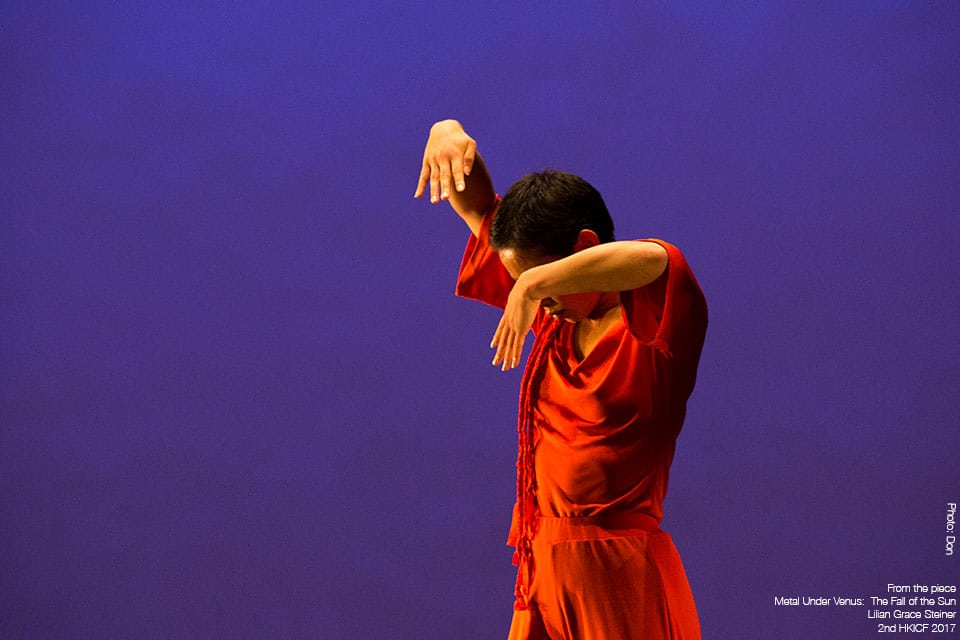
A.C.- How can the arts facilitate cross cultural dialogue?
Jose.- I think that Van is embracing this idea; he is trying to create space, which is the most important element for an art form like dance. He is creating exchange for people to reflect about their practise and to feel how they can get influenced by other cultures, by other ways of looking at dance and at life.
Lewis.- We are working with bodies and everyone has a body, so we are speaking to each other through a shared language. The fact that you can talk to people through the body, and dance being obviously very good at this, is one way how dance speaks across intercultural boundaries. Thus, that’s why we should see more festivals like this one where there’s more of an international mishmash.
A.C.- What did you personally or professionally take away from these weeks?
Jose.- The hospitality was so amazing! They are really respectful towards the teacher, treating you like a master and giving you everything! It’s quite shocking and really humbling, so I was really touched.
Andrea.- Seriously, the residency and making this work has shifted my entire choreographic journey so significantly. I don’t know if it was Hong Kong, the type of work that we made there or the type of research we ended up developing… Sometimes when we create at home there are many things happening at the same time in our life and not so much empty space to really reflect. Being so far away and with such a small team, it became a residency to research my artistic approach and make the work through that research, rather than showing up and saying ‘Oh I need to make a piece five, six, seven, eight’. I would recommend it to that artist who is looking for that place of reflection, looking to sit in their work for a really long time and question it, get bored of it and go deeper and deeper. That’s really what it’s served me for.
To find out more about the program, the faculty and the current artists in residence check HKICF-HKICAROS website: www.hkicf.unityspace.org
Facebook: https://www.facebook.com/unityspaceaspaceofintegration
https://www.facebook.com/HKInternationalChoreographyFestival
Instagram: unity_space
Upcoming Events:
2nd East Point West |Interdisciplinary Festival of Embodiment
3rd to the 13th of July – Kuala Lumpur
Applications are open offering scholarships and financial aid to artists in need.
https://east-point-west.unityspace.org
—
Featured image: The Van-L Dance Company “Liminal” HKICF 2017
- Daniel Mariblanca: A transgender voice in dance - July 4, 2019
- HKICAROS & Hong Kong International Choreography Festival–Where east and west meet. A space to question, discuss, explore and develop choreography; creating its present to envision its future. - July 3, 2019
- Plain speaking;a conversation with Choreographer Jamaal Burkmar - July 2, 2019

